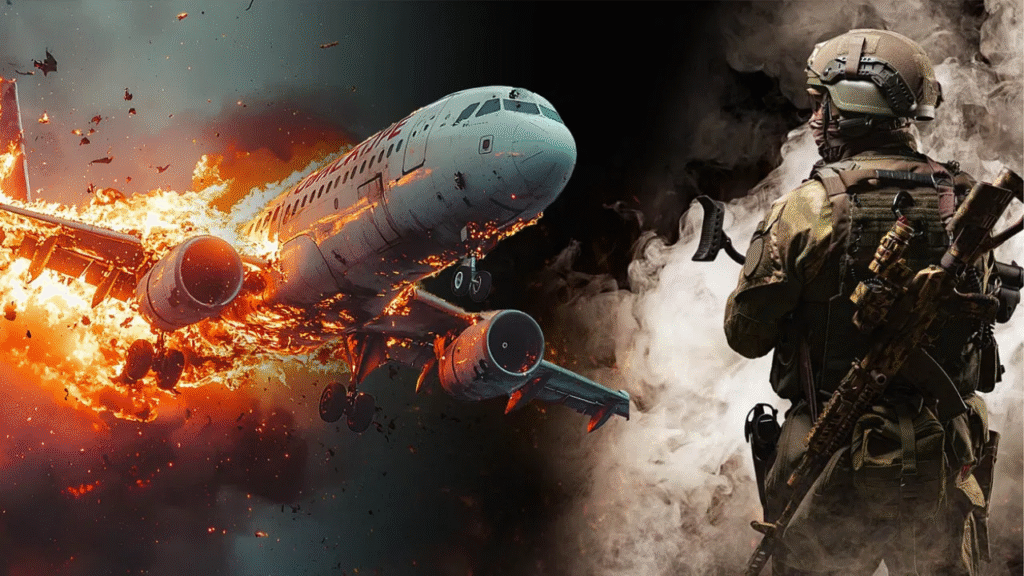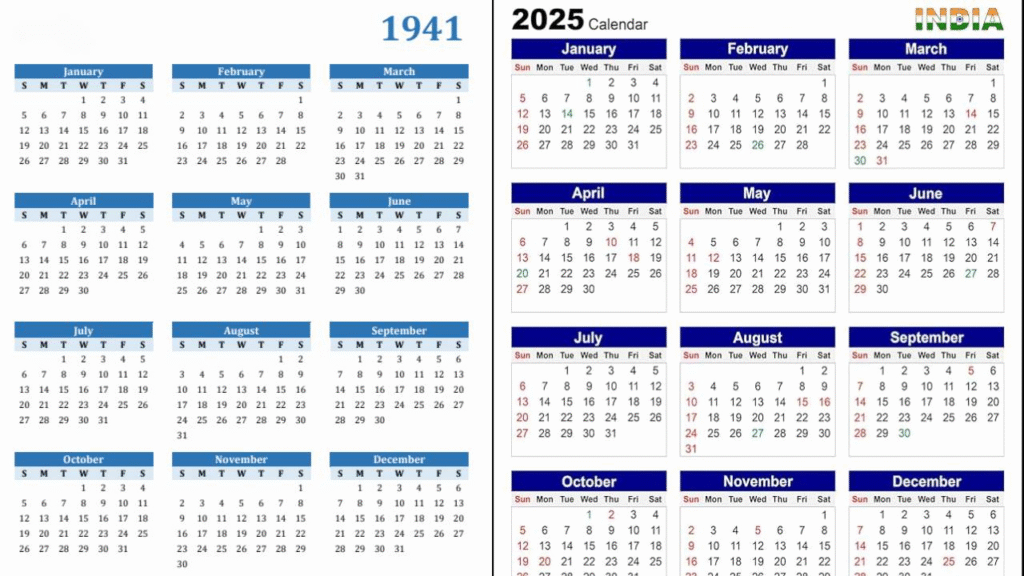In 2025, an unusual and slightly eerie theory has gone viral — that the events of this year mirror what happened in 1941, a year that marked one of the darkest chapters in world history. From calendar patterns to rising geopolitical tensions, many are questioning: Is 2025 becoming the modern-day 1941?
Let’s break down what happened in 1941, compare it to current global events, and understand whether there’s any truth behind this intriguing comparison — or if it’s just another case of viral fear-mongering.
Table of Contents
🗓️ What Sparked the 1941–2025 Connection?
It all started with an observation: the calendar of 2025 exactly matches that of 1941. January 1st falls on the same day of the week, and so does every other date.
This has triggered widespread speculation across TikTok, Reddit, X (formerly Twitter), and Instagram, with people drawing comparisons between:
- Rising global conflicts
- Political instability
- Economic uncertainty
- Military escalations and alliances
While it’s tempting to believe history might be repeating itself, experts say the comparison should be taken with caution — because the events of 1941 were far more extreme and occurred in a different world order.

🕰️ What Actually Happened in 1941?
1941 was a turning point in World War II. Major global events that year included:
- Operation Barbarossa: Nazi Germany’s invasion of the Soviet Union on June 22, 1941.
- Pearl Harbor Attack: On December 7, 1941, Japan attacked the U.S. Navy base at Pearl Harbor, drawing the United States into the war.
- The Holocaust escalated with mass deportations and killings.
- Battles in North Africa, Asia, and Europe intensified.
- Formation of critical alliances between Allied forces.
It was the year when a regional conflict became a full-scale global war.
🌍 What’s Happening in 2025?
Fast forward to 2025, and the world is indeed experiencing multiple points of tension, but not on the same scale as WWII.
Here’s what’s happening globally:
- Middle East tensions: Iran-Israel conflicts have escalated, with drone attacks and cyber warfare becoming frequent.
- Ukraine-Russia war: Still ongoing with no clear resolution in sight.
- China-Taiwan-US relations: Tensions remain high in the Indo-Pacific, raising concerns about a possible confrontation.
- AI and cyber warfare: Unlike 1941’s battlefield focus, today’s war zones often involve data, satellites, and AI.
- Economic instability: Inflation, supply chain disruptions, and recession fears loom in many countries.
While these are serious issues, they have not yet escalated into a global conflict resembling WWII.
Israel vs Iran War 2025: Full Story, Reasons, Current Situation & America’s Role

🔍 Why Do People Believe History Is Repeating?
There are several reasons why the 1941–2025 parallel is so captivating:
1. Calendar Pattern Matching
Humans love patterns. The fact that 1941 and 2025 share the same calendar dates makes the theory feel more real.
2. Psychological Parallels
Both years are seen as tipping points in uncertain times. In 1941, the world was descending into war. In 2025, people feel on edge due to technology disruption, war, and political change.
3. Media and Fear Culture
Social media thrives on viral, fear-driven content. “History repeating itself” is a dramatic hook that spreads fast — even if it’s just a theory.
📚 What Experts Say
Historians and analysts have weighed in on this viral theory. Most agree:
- No direct connection exists between 1941’s world war escalation and 2025’s current events.
- Yes, geopolitical risks are real, but they differ in scale, technology, and diplomatic environment.
- The world is more interconnected today, with faster diplomacy, global media coverage, and nuclear deterrents preventing large-scale conflict.
In short: we’re not in another 1941 — at least, not yet.
Madhya Pradesh on Red Alert: IMD Warns of Heavy Rainfall Across the State

✨ So, Should We Be Worried?
While the calendar coincidence is interesting, it doesn’t mean disaster is inevitable.
That said, 2025 is a crucial year for global leadership, diplomacy, and climate action. Here’s what we can focus on instead of fear:
- Strengthening international dialogue
- Investing in peacekeeping and humanitarian efforts
- Building resilience against disinformation
- Supporting global economic recovery
🧠 Conclusion: Pattern or Paranoia?
The theory that 2025 mirrors 1941 is more psychological than historical. While it’s important to be aware of global developments, it’s equally vital not to fall for panic-driven narratives that have no basis in fact.
Let’s not repeat history’s mistakes — but let’s not fear the future either.











2 thoughts on “🔁 1941 vs 2025: Is History Repeating Itself or Just a Calendar Coincidence?”